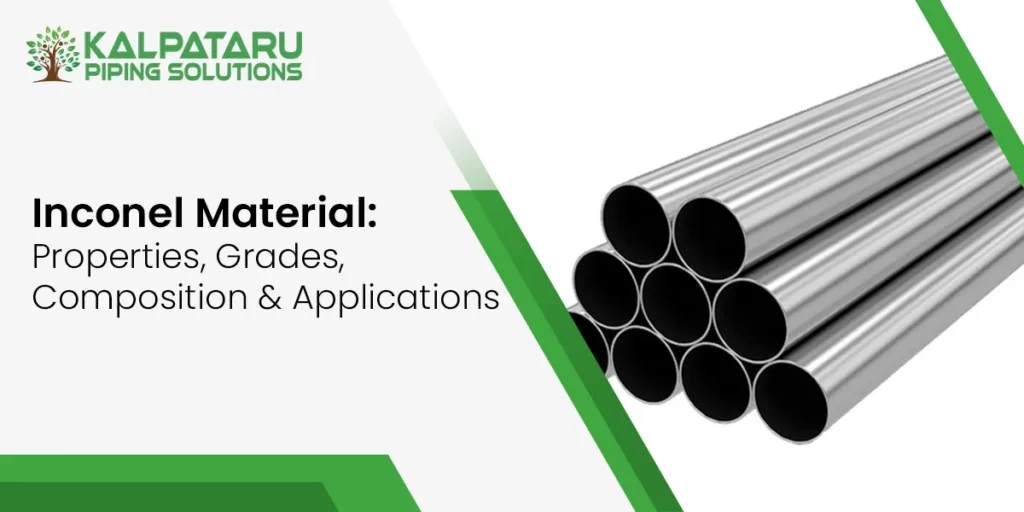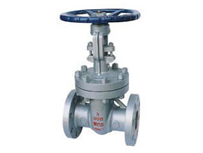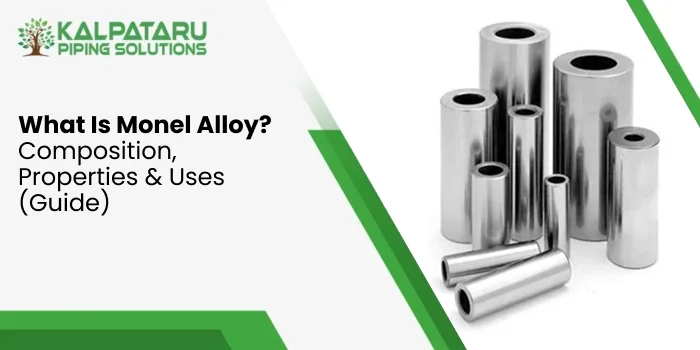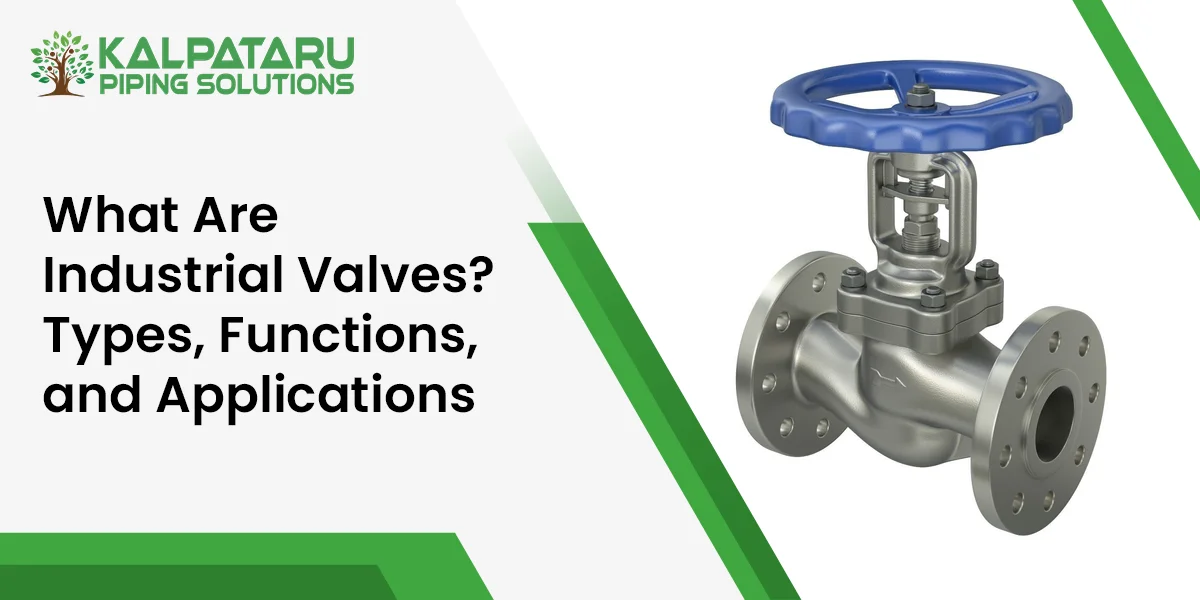
Inconel is a group of nickel-chromium-based superalloys engineered to perform in the harsh environments where conventional materials fail. Known for retaining exceptional strength, stability and corrosion resistance under extreme conditions, Inconel is widely trusted across industries such as aerospace, marine, oil & gas and chemical processing. Unlike stainless steel, which loses mechanical integrity beyond 600°C, Inconel alloys remain structurally sound even when exposed to temperatures exceeding 1000°C. This unique performance makes them indispensable in high-stress, high-temperature and corrosive applications where reliability and safety are non-negotiable.
What sets Inconel apart is its unique chemical composition, with nickel as the base element enhanced by chromium, molybdenum, niobium, and other alloying additions. This balance not only provides resistance to oxidation and scaling but also protects against chloride-induced corrosion and aggressive chemicals that would otherwise compromise industrial systems. From jet engine turbine blades and reactor vessels to subsea pipelines and heat exchangers, Inconel delivers unmatched reliability where safety and durability are paramount.
As a global supplier of Inconel pipes, tubes, fittings and flanges, Kalpataru Piping Solutions offers quality-certified products that meet international standards and support industries in achieving efficiency, safety and long-term performance.
What is Inconel Material?
Inconel is a nickel chromium-based superalloy engineered for superior strength, resistance to corrosion, and stability under extreme temperature and pressure conditions. These alloys are designed to withstand oxidation and chemical attack, making them suitable for highly demanding environments. At elevated temperatures, Inconel forms a dense and stable oxide layer on the surface, which acts as a protective shield against further deterioration. Unlike materials such as steel or aluminum that lose mechanical strength due to creep at high heat, Inconel retains its integrity across a wide thermal range. The high-temperature strength of Inconel is achieved through either solid-solution strengthening or precipitation hardening, depending on the alloy grade.
Chemical Composition of Inconel Material
The unique Inconel composition, dominated by nickel and chromium, forms the foundation for its exceptional strength and heat resistance. Additional elements such as molybdenum and niobium improve pitting resistance and contribute to precipitation hardening, making the alloy suitable for critical applications. Below is a table showing typical composition ranges for widely used grades:
| Element | Inconel 600 | Inconel 625 | Inconel 718 |
| Nickel (Ni) | 72% min | 58% min | 50–55% |
| Chromium (Cr) | 14–17% | 20–23% | 17–21% |
| Iron (Fe) | 6–10% | 5% max | Balance |
| Molybdenum (Mo) | – | 8–10% | 2.8–3.3% |
| Niobium + Tantalum | – | 3.15–4.15% | 4.75–5.5% |
| Cobalt (Co) | – | 1% max | 1% max |
| Carbon (C) | 0.15% max | 0.10% max | 0.08% max |
Nickel + Chromium → Nickel forms the alloy’s base, while chromium provides a protective oxide layer, giving Inconel excellent resistance to oxidation and scaling at high temperatures.
Molybdenum → Enhances resistance against pitting and crevice corrosion, particularly in chloride-rich environments such as seawater and chemical plants.
Niobium → Strengthens the alloy through precipitation hardening, improving creep resistance and making Inconel suitable for turbines and high-stress aerospace applications.
Key Properties of Inconel Material
- High-Temperature Resistance: Inconel alloys maintain their mechanical strength and stability above 1000°C, supported by an Inconel melting point ranging between 1350°C and 1400°C. This makes them indispensable in turbines, reactors, and jet engines where extreme heat would normally weaken conventional alloys.
- Oxidation & Corrosion Resistance: The protective oxide layer formed by chromium prevents scaling, rusting, and chemical attack even in chloride-rich or acidic environments. This ensures long service life in marine and chemical industries.
- Strength & Durability: Inconel resists creep, fatigue, and stress rupture under extreme mechanical loads. Its combination of toughness and wear resistance makes it suitable for heavy-duty industrial applications.
- Good Weldability: Certain grades like 625 and 718 can be welded without losing corrosion resistance or strength, enabling fabrication of complex components for demanding engineering projects.
- Inconel Density: With an average density of around 8.44 g/cm³, Inconel provides stability in high-pressure systems. This contributes to its use in power plants, aerospace, and deep-sea equipment where reliability is critical.
Hardness of Inconel Material
The hardness of Inconel varies depending on the grade and treatment process. Annealed alloys are softer for machining, while age-hardened grades achieve high hardness suitable for aerospace and turbine applications. Below is the typical hardness values of Inconel grades:
| Grade | Condition | Hardness (HRB/HRC) | Notes |
| Inconel 600 | Annealed | 80 HRB | General corrosion resistance |
| Inconel 625 | Annealed | 92 HRB | Excellent weldability |
| Inconel 718 | Age-Hardened | 36 HRC | Aerospace-grade strength |
| Inconel X-750 | Precipitation Hardened | 33 HRC | Used in turbines & rocket engines |
Note: HRB (Rockwell B) measures softer ranges while HRC (Rockwell C) is for harder alloys. A key advantage of Inconel is its ability to maintain hardness even at elevated temperatures where most metals soften.
Inconel Material Grades
Inconel 600: Known for good resistance to oxidation and corrosion in moderate environments, making it suitable for chemical processing, heaters, and food industry equipment. Its stability at high temperatures ensures consistent performance.
Inconel 625: Offers excellent weldability and high resistance to pitting, crevice corrosion, and chloride attack, which makes it ideal for marine, chemical, and aerospace applications. It is often used in seawater systems and heat exchangers.
Inconel 718: A precipitation-hardenable alloy that provides exceptional tensile and creep-rupture strength at high temperatures. Widely used in jet engines, turbines, and nuclear reactors where long-term strength is critical.
Inconel X-750: Engineered for high stress and high temperature service, this grade is extensively used in gas turbines, rocket engines, and power generation. It retains toughness and oxidation resistance under cyclic loads.
Comparison of Major Inconel Grades
| Grade | Strength at High Temp | Corrosion Resistance | Weldability | Typical Applications |
| 600 | Moderate | Good in oxidizing media | Fair | Chemical processing, heaters |
| 625 | High | Excellent in marine/acidic media | Excellent | Marine equipment, chemical plants |
| 718 | Very High | Good, especially with Nb hardening | Excellent | Jet engines, turbines, reactors |
| X-750 | Very High | Good, high stress resistance | Good | Gas turbines, rocket engines |
| 825 | Moderate | Excellent in strong acids | Fair | Acid plants, marine systems |
Inconel Material Codes & Standards
Procurement of Inconel components requires adherence to international material standards. These codes ensure compatibility and reliability across industries.
ASTM B163 / B167 – Seamless Inconel Tubes: These standards cover seamless nickel-chromium-iron alloy tubes used in high-temperature and corrosive environments. They ensure consistent wall thickness, durability, and pressure resistance.
ASTM B444 / B446 – Pipes & Rods: Specifies requirements for seamless, welded pipes and forged rods of Inconel alloys. These are widely used in aerospace, nuclear, and chemical processing equipment due to their strength and corrosion resistance.
ASTM B424 / B425 – Sheets & Plates: Covers Inconel 825 sheets, plates and strips designed for acidic and marine applications. It ensures dimensional accuracy and performance reliability under aggressive chemicals.
ASME SB167 / SB444 – Pressure Vessel Applications: These codes align with ASTM but are certified for boiler and pressure vessel use, guaranteeing safety in high-pressure and high-heat systems.
ISO / DIN Standards – Flanges, Fasteners & Fittings: International codes ensure compatibility across global supply chains and provide uniform quality benchmarks for critical components in piping systems.
Inconel vs Stainless Steel / Other Alloys
Inconel is often compared with stainless steel, titanium and Hastelloy. While stainless steels are more affordable, they lose strength beyond 600°C. Titanium offers excellent strength-to-weight ratio but lacks resistance to certain chemicals. Hastelloy is superior in reducing environments but not as strong at high temperatures.
Alloy Comparison
| Alloy | Max Temp Resistance | Corrosion Resistance | Cost | Applications |
| Inconel | >1000°C | Excellent | High | Aerospace, chemical, marine |
| Stainless Steel | ~600°C | Moderate | Low | General industry |
| Titanium | ~600°C | Good (oxidizing media) | High | Aerospace, medical |
| Hastelloy | ~650°C | Excellent (acidic env.) | High | Chemical plants |
Limitations of Inconel Material
High Cost: Inconel is significantly more expensive than stainless steel due to its high nickel and alloying content. This makes it less practical for applications where standard alloys can perform adequately.
Difficult Machining: The alloy work-hardens rapidly, requiring special cutting tools, slower speeds, and skilled handling. This increases manufacturing time and cost compared to machining common steels.
Limited Availability: Not all grades and forms of Inconel are readily available, and lead times can be longer. This can pose challenges for projects requiring quick procurement.
Conclusion
Out of all potential materials for severe service industries, Inconel is one of the most trusted. It excels at retaining strength at high temperatures, resisting oxidation and resisting aggressive chemicals and environments. Therefore it is used in a variety of industries including aerospace, marine, oil & gas and chemical processing industries. Although it has some barriers including high cost and challenging to machine where needed, the performance values are significant enough to mitigate those barriers for critical applications. At Kalpataru Piping Solutions, we offer a full range of Inconel pipes, tubes, fittings and flanges that are manufactured to international standards. Our Inconel products are reliable and will provide long life in demanding industrial projects with the efficiency and reliability required by industry clients across the globe.
Frequently Asked Questions About Inconel Material
Inconel 718 is widely used in aerospace engines, turbines, and nuclear reactors due to its age-hardenable properties and excellent strength at high temperatures.
Inconel welding involves specialized techniques such as TIG or MIG welding using compatible filler metals to maintain alloy strength and corrosion resistance.
The melting point varies by grade but typically ranges between 1350°C and 1400°C.
Inconel is classified as a non-ferrous alloy because its base is nickel, not iron, although it contains small amounts of iron.
No, Inconel is a nickel-chromium superalloy, whereas stainless steel is an iron-based alloy. They differ significantly in high-temperature strength and corrosion performance.
Most Inconel grades are non-magnetic, thanks to their high nickel content.



